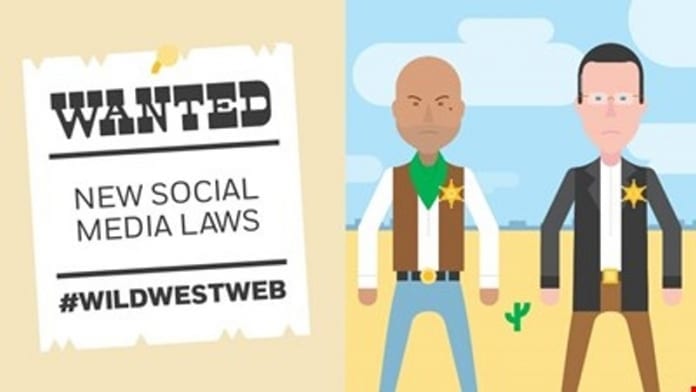- New survey reveals 77% of British adults agree that named directors should face criminal sanctions for gross breaches of child safety
- And 85% agree that social networks should face corporate prosecution for significant breaches
- NSPCC urges Government to commit to creating new offence for gross breaches of duty of care.
Three quarters of British adults agree that tech companies and their directors should face criminal sanctions for failures to keep children safe on their sites, a new NSPCC survey1 has revealed.
These figures come just days after the Government released its Online Harms White Paper, which proposed introducing an independent regulator to enforce a legal duty of care on tech companies to keep users safe on their platforms.
The NSPCC believes that tough sanctions are needed to ensure that responsibility to keep children safe is truly embedded in the boardrooms of tech firms.
In Wales, 84 per cent of those surveyed agreed that social networks should face corporate prosecution for significant breaches of child safety.
When asked if company directors should face criminal prosecution for significant breaches of children’s safety, 75 per cent of people in Wales agreed with this statement.
The UK Government is consulting on various aspects of the proposed laws, including whether senior managers should be made liable for gross breaches and whether this should be criminal rather than civil liability.
The NSPCC believes it must be criminal and also that a new corporate offence should be created so that tech firms can be prosecuted for gross breaches in their duty of care to children.
The charity’s opinion poll, which surveyed more than 2,000 adults, revealed:
- 77% of adults back criminal prosecution of named directors for significant breaches of child safety;
- And 85% support corporate prosecutions to be brought against social networks for significant breaches.
Both these elements were called for in the charity’s detailed proposal ‘Taming the Wild West Web’, released earlier this year2.
Danielle Armitage was groomed on a social network by a 49-year-old man when she was only 14. She initially believed he was 16. He kept her silence by threatening to hurt her family but was prosecuted and jailed after her father discovered the truth.
Now 22, Danielle speaks out about the abuse to campaign for tech companies to protect young people on their sites.
Talking about the abuse, Danielle said: “He started being affectionate, and he would give me compliments. As I was feeling quite alone at that time, it was nice to get that attention.
“As our relationship developed, I felt there was a bond there. I felt in no danger at all. After two or three weeks we decided to meet up just round the corner from my school.
“It’s only when I was sat in the passenger’s seat that I realised how old he was. That realisation was scary. He started driving straight away. He didn’t even say anything to me. He took me to a nearby forest, and told me to take my clothes off so he could take photographs.”
Danielle was coerced into meeting up with him on two more occasions, with the sexual abuse becoming more violent.
She said: “Things need to change. I help my partner care for his two girls who spend time on the internet. I am scared for their safety, even though we put all the parental controls in place to protect them.
“It is important that social networks put in protective measures that will stop abuse from happening in the first place and not just reacting once it’s already begun.”
Peter Wanless, NSPCC Chief Executive, said: “The Government’s pledge to bring in independent statutory regulation of social networks is hugely significant but, for effective enforcement, it is vital the regulator has teeth.
“These latest figures show there is overwhelming support for both corporate and individual criminal liability in cases where tech companies significantly fail to protect children from harm.
“We urge the Government to take this crucial opportunity and decide on legislation that will make tech firms feel the full weight of the law if they fail in their duty of care to children.”
Sanctions the Government has already committed to, and for which the NSPCC’s Wild West Web campaign called for, include the regulator issuing civil fines, serving enforcement notices, publishing public failure notices and requiring tech firms to disclose information about the breach.
The public can support the NSPCC’s Wild West Web campaign by signing the petition now.
Help us Close the Loophole in the law
Let’s ensure all adults in a position of trust are banned from sexual activity with any young person under the age of 18 in their care. Email your MP now.
Help keep news FREE for our readers
Supporting your local community newspaper/online news outlet is crucial now more than ever. If you believe in independent journalism, then consider making a valuable contribution by making a one-time or monthly donation. We operate in rural areas where providing unbiased news can be challenging. Read More About Supporting The West Wales Chronicle

























